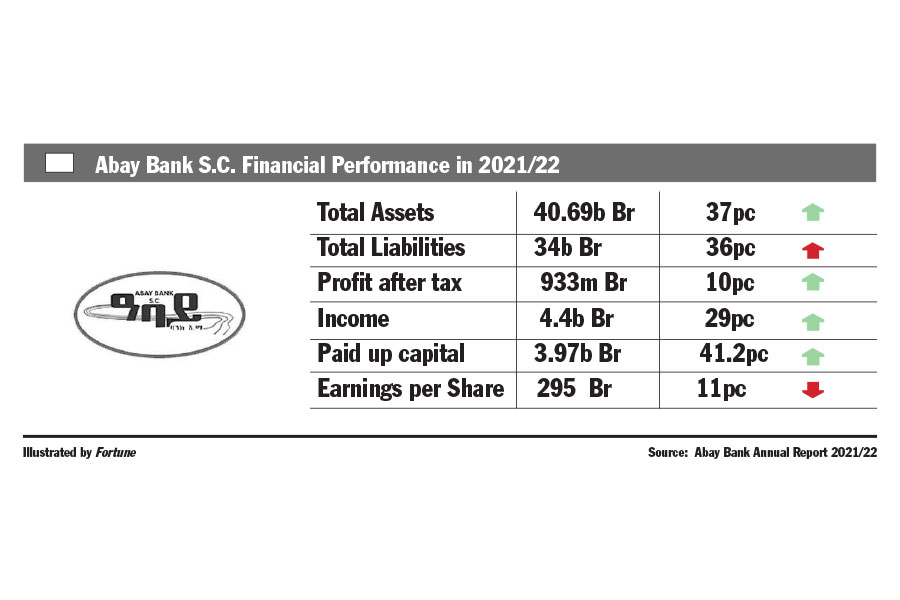
Dec 4 , 2020
By Kefale Aschalew , Israel Tekle
The 1960 Commercial Code still governs trade and commerce in Ethiopia. While it was progressive and forward-looking for its time, it is now clearly not adequate enough to regulate subsequent unprecedented developments in commerce. The new draft article rises to the challenge to address these, write Kefale Aschalew, legal researcher at the Legal & Justice Affairs Advisory Council, and Israel Tekle, consultant and member of Commercial & Civil Law Working Group.
Trade and commerce have a long history in Ethiopia, dating back to the kingdom of Aksum. However, it was only in 1960 that a comprehensive commercial code, which regulates commercial and trade relationships, was formally enacted.
Although the 1960 Commercial Code was progressive and forward-looking for its time, it was not adequate enough to regulate subsequent unprecedented developments in commerce, especially ones triggered by new technological advancements such as internet-based electronic transactions.
Recognizing the need for modern and progressive commercial law for overall economic development, several reform efforts have been undertaken by the Attorney General’s Office. As part of such reform efforts of the current administration, the Legal & Justice Affairs Advisory Council, under the Office, has come up with a draft commercial code.
The new code is reviewed and refined by the Commercial & Civil Law Reform Working Group, established under the auspices of the Advisory Council, made up of members drawn from the legal profession, academia and international experts in the area of commercial law. The draft not only regulates new technology and other developments in commerce to ensure Ethiopia’s competitiveness in global commerce and investment, it has also introduced major developments, removing unnecessary burdens that affect the ease of doing business.
One of these momentous changes is the introduction of new trade activities. The 1960 Commercial Code was restrictive to the extent that only individuals who engaged in one of the 21 trade activities listed under article 5 of the Code were considered traders. Such restrictions negatively affects entrepreneurship as people who engage in activities that are not listed under the Code are not considered traders.
The draft commercial Code resolves this problem in two ways. Primarily, unlike the former Code, it provides an illustrative list of trade activities so that people that engage in related activities can be considered traders. Thus, even someone that engages in an activity that is not expressly listed as trade will be considered. The draft code further resolved the problem through increasing the list of trade activities from 21 under the former Code to 37.
Another critical addition in the draft code is the introduction of two new types of business organisations that were not known under the previous law. Among others, the draft code has permitted the operation of businesses under one-man company and a limited liability partnership arrangement. The latter will allow professionals such as lawyers, accountants or engineers to operate businesses.
The draft has also introduced detailed provisions through which foreign companies can operate in Ethiopia through a branch office. The law now considers branches as an extension of the main foreign company, requiring no separate legal personality. Foreign businesses can operate in Ethiopia through a branch office upon registration by the Ministry of Trade & Industry, fulfilling the necessary requirements.
Introduction of a one-man company is very important for foreign and domestic investors who, although they have sufficient capital to establish a company, are unable to form one by themselves except in partnership with others. Such companies present the benefit of limited liability for business persons, which was not available under the sole proprietorship arrangement in the former law. Owners of a one-man company will not be personally held responsible for the liabilities of the company.
The other major pro-business area of reform is related to corporate governance and management. The draft has introduced the possibility for businesses to assign board directors that are not shareholders. This will enable shareholders to assign capable non-shareholders of their choice to safeguard their interests better. The code has also introduced a supervisory board to share companies to oversee the activities of the board directors and ensure transparency.
Unlike the current code, the draft provides a more detailed obligation for board directors related to disclosure, transparency, avoidance of conflict of interest and protection of minority shareholders. Any transaction between the company and related persons is required to be approved by the board directors and auditors. Any conflict of interest must be reported to the General Meeting of Shareholders. In addition, the draft code specifically prohibits companies from extending loans or guarantee loans to board directors of the company, or its parent, unless authorised by the General Meeting.
Any business organisation is under obligation to maintain a record on the personal status, profession, and the stake and position of members of its board, executive managers, auditors and executive secretaries. The draft has also provided detailed protections for minority shareholders, one of these being permitting minority shareholders to assign their representative on the board. Minority shareholders have the right to transfer their shares to the dominant shareholder that owns 90pc and above of the shares of the company. On the other hand, a shareholder who owns 90pc and above shares in a given company has the right to purchase the remaining 10pc of shares from minority shareholders.
No less critical to doing business is how it deals with security rights, which can be created by agreement or through the force of law. The draft code entitles creditors to satisfy their claims by selling the business of the defaulting debtor as a going concern. Similarly, the seller of a business is legally entitled to use such business as collateral in case the buyer fails to pay the price. This presents a special opportunity for business owners to access bank credit using their business as collateral. For instance, the owner of a hotel can use it as a going concern for collateral to access bank credit. Note that, however, business consists of only goodwill, incorporeal assets and movable assets excluding immovable assets in which the business operates. Accordingly, immovable assets such as buildings cannot be used as collateral as part of the business.
The amendment will introduce a range of schemes to save financially strained businesses. The main objective of the former Code was the protection of creditors through legally winding-up financially strained businesses and gave little room for saving such businesses from liquidation. The draft code, however, provides detailed rules of credit and corporate reorganisation as alternatives before entering bankruptcy procedure. A debtor who has not yet suspended payment or has suspended payment on no more than 45 days can apply for credit reorganisation to a court of law by attaching documents that describe its financial flow. Credit reorganisation refers to re-planning of the capital, assets or contracts of the debtor in such a manner that can resolve its financial strains. Whenever it is proved that the debtor cannot effect payments, the debtor, public prosecutor or the court at its initiative can decide whether or not the business organisation to be reorganised.
The amendment to the law has been six decades in coming, and the initiative shown by the government has been admirable. There should be no more time wasted to passing it in parliament and have a law adaptable to our time in governing commerce and trade.
PUBLISHED ON
Dec 04,2020 [ VOL
21 , NO
1075]

Fortune News | May 18,2019


Sunday with Eden | Jul 10,2021

Sunday with Eden | Feb 23,2019

Fortune News | Mar 18,2023

Fortune News | Oct 30,2022

Radar | Mar 16,2019

Fortune News | Oct 24,2020

Radar | Mar 20,2021

Fortune News | May 07,2025

My Opinion | 131656 Views | Aug 14,2021

My Opinion | 128020 Views | Aug 21,2021

My Opinion | 125983 Views | Sep 10,2021

My Opinion | 123607 Views | Aug 07,2021

Dec 22 , 2024 . By TIZITA SHEWAFERAW
Charged with transforming colossal state-owned enterprises into modern and competitiv...

Aug 18 , 2024 . By AKSAH ITALO
Although predictable Yonas Zerihun's job in the ride-hailing service is not immune to...

Jul 28 , 2024 . By TIZITA SHEWAFERAW
Unhabitual, perhaps too many, Samuel Gebreyohannes, 38, used to occasionally enjoy a couple of beers at breakfast. However, he recently swit...

Jul 13 , 2024 . By AKSAH ITALO
Investors who rely on tractors, trucks, and field vehicles for commuting, transporting commodities, and f...

Jun 28 , 2025
Meseret Damtie, the assertive auditor general, has never been shy about naming names...

Jun 21 , 2025
A well-worn adage says, “Budget is not destiny, but it is direction.” Examining t...

Jun 14 , 2025
Yet again, the Horn of Africa is bracing for trouble. A region already frayed by wars...

Jun 7 , 2025
Few promises shine brighter in Addis Abeba than the pledge of a roof for every family...

Jun 29 , 2025
Addis Abeba's first rains have coincided with a sweeping rise in private school tuition, prompting the city's education...

Jun 29 , 2025 . By BEZAWIT HULUAGER
Central Bank Governor Mamo Mihretu claimed a bold reconfiguration of monetary policy...

Jun 29 , 2025 . By BEZAWIT HULUAGER
The federal government is betting on a sweeping overhaul of the driver licensing regi...

Jun 29 , 2025 . By NAHOM AYELE
Gadaa Bank has listed 1.2 million shares on the Ethiopian Securities Exchange (ESX),...